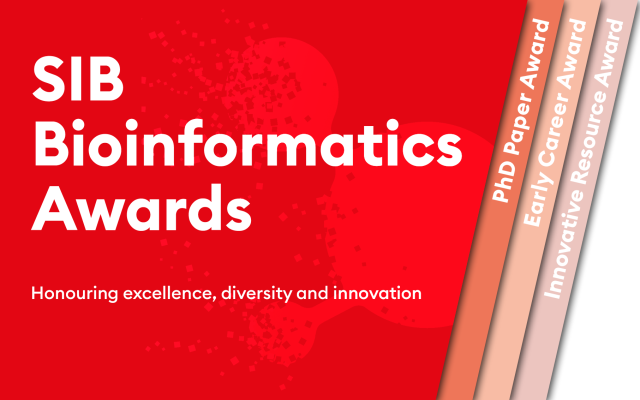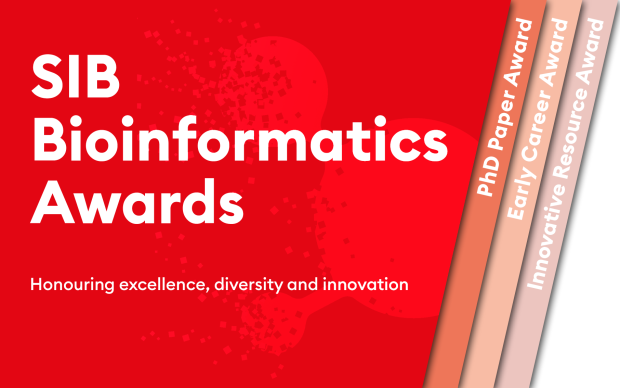Guillaume Rey – Laureate of the 2011 SIB Best Swiss Bioinformatics Graduate Paper Award
Guillaume Rey did his graduate studies in the team of SIB Group Leader Félix Naef at EPFL (Lausanne) when he received the award for his paper “Genome-Wide and Phase-Specific DNA-Binding Rhythms of BMAL1 Control Circadian Output Functions in Mouse Live”.
Today, Guillaume works as a Research Scientist in the laboratory of SIB Group Leader Emmanouil Dermitzakis at the University of Geneva where he is developing new ways to integrate multidimensional genomic datasets. To learn more about Guillaume’s research interests, follow @guiomrey on Twitter and read our interview with him.
About the SIB Bioinformatics Awards and our interview series “Meet the past SIB Awards Laureates”
Started in 2008 as an initiative to distinguish young bioinformaticians in Switzerland, the SIB Bioinformatics Awards have gone a long way since: from a single national award to three different prizes today, honouring 1) international early career bioinformaticians (SIB Early Career Bioinformatician Award), 2) excellency within the Swiss PhD community (SIB Best Swiss Bioinformatics Graduate Paper Award) and 3) innovative bioinformatics resources (SIB Bioinformatics Resource Innovation Award). Throughout the years, 21 awards have been presented, with nine laureates recognized for their outstanding early career, ten Graduate students for their excellent publication and two bioinformatics resources for their innovative aspect.
In 2019, the SIB Bioinformatics Awards will be presented for the 10th time, providing a great occasion to reach out to past laureates and ask them where they are now in their career: this interview is part of a series inviting you to meet past SIB Bioinformatics Awards laureates.
At which point of your career were you when you received the SIB Award? How did it feel? What was the key interest of your research at this time point?
I was very honoured to receive the award. Moreover, it was a great opportunity to present my work to a wider audience and meet excellent scientists.
At that time, I was studying the genome-wide organization of circadian (about 24h) rhythms in mammals. In particular, I showed that the core circadian transcription factor BMAL1 is directly involved in genome-wide regulation of circadian transcription in mouse liver. My analyses revealed widespread genomic rhythms in DNA binding, with maximum levels peaking at the middle of the day. They also gave us new insights into physiological processes in the liver that are directly controlled by the core clock.
What are your current research interests?
I have a strong interest in the integration of multidimensional genomic data (i.e. multi-omics) and in the application of the latter to develop diagnostics tools and to guide personalized therapies.
As part of the SYSCID consortium, a large EU-funded project studying chronic inflammatory diseases, I am currently interested in understanding the genetic determinants and gene networks involved in several inflammatory diseases, including inflammatory bowel disease, rheumatoid arthritis and systemic lupus. To this end, I am developing methods to perform multi-layer genomic data integration in order to facilitate the interpretation and visualization of large-scale genomic data.
In your personal opinion, what is the single most fascinating discovery made possible by bioinformatics?
As biomedical sciences are becoming more and more quantitative and data-driven, bioinformatics has contributed to many of their recent advances. An important example is the discovery of the structure of the chromatin at different genomic scales, enabled by techniques involving chromosome conformation capture. In an unprecedented way, these techniques have revealed the 3D organization of our genomes and gave important insights about the role of long-range DNA interactions for gene regulation.
What do you like to do in your free time?
I enjoy spending time with my family and doing outdoor sports like running and cross-country skiing.
Any words for the future generation of bioinformaticians?
As bioinformatics is playing a crucial role in the implementation of genomic medicine into the clinic, the future generation of bioinformaticians will face the exciting challenge of translating bioinformatics knowledge and expertise to solve clinically relevant problems.





